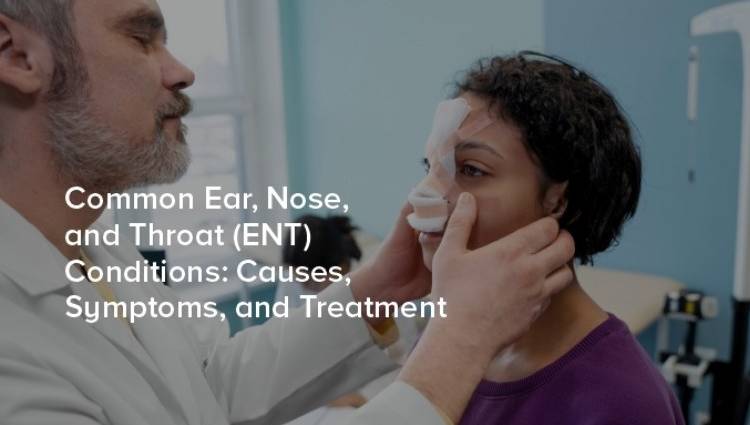
Our ears, nose, and throat are vital parts of our body that help us to breathe, swallow, speak, and hear without any discomfort. However, due to various reasons, we may experience some common ENT conditions that could be quite challenging to manage. These conditions can be caused by allergies, infections, or environmental pollutants.
Sinusitis
Sinusitis, commonly known as a sinus infection, occurs due to the inflamed sinuses caused by bacterial or viral infections. Sinus infections can cause severe facial pain, headaches, and a runny nose. The pressure caused by it can also lead to earaches and jaw pain. Treatment for sinusitis typically includes antibiotics, nasal sprays, and pain relievers.
Hay Fever
Also known as allergic rhinitis, hay fever is caused by an allergic reaction to environmental allergens such as pollen, dust mites, or pet dander. The symptoms of hay fever include a runny nose, sneezing, itchy eyes, and throat irritation. Antihistamines and nasal sprays can help to ease the symptoms of hay fever.
Ear Infections
Ear infections, especially in children, are quite common and can be caused by bacteria or viruses. Symptoms of ear infections include ear pain, fever, and trouble hearing. In most cases, ear infections can be treated with antibiotics. In severe cases, surgery may be needed.
Tonsillitis
Tonsillitis is caused by the swelling or inflammation of the tonsils, which are the two masses of tissue located in the back of the throat. This condition usually affects children but can also occur in adults. Tonsillitis symptoms include sore throat, fever, and difficulty swallowing. Treatment options for tonsillitis include antibiotics and surgery.
Vertigo
Vertigo is a condition that causes dizziness, the feeling of spinning or whirling motion, and balance problems. The most common causes of vertigo are inner ear problems such as Meniere's disease or benign positional vertigo. Treatment options for vertigo include medication, physical therapy, or maneuver techniques.
ENT conditions can be quite debilitating, affecting our breathing, hearing, and speaking ability. The good news is that most ENT conditions can be successfully treated with medication or surgery. However, it's essential to seek medical attention if you experience persistent symptoms of an ENT condition. Remember, prevention is better than cure, so take care of your ears, nose, and throat by avoiding allergens, practicing good hygiene, and seeking timely medical care.